Search Results
Showing results 1 to 20 of 28

Incredible Shrinking Shapes
Source Institutions
In this activity, learners get hands-on experience with ratios and scaling while making their own jewelry out of recycled plastic containers.
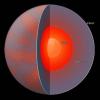
Heavyweight Champion: Jupiter
Source Institutions
In this activity, learners confront their perceptions of gravity in the solar system.

Dunking the Planets
Source Institutions
In this demonstration, learners compare the relative sizes and masses of scale models of the planets as represented by fruits and other foods.
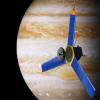
The Pull of the Planets
Source Institutions
In this activity, learners model the gravitational fields of planets on a flexible surface.
Soaring Towers: Building with Recycled Materials
Source Institutions
In this activity, learners will build the highest tower they can out of recycled materials.
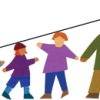
Line Up: Using Math To Stand In Line
Source Institutions
Put math of measurement into lining up — and make waiting in line fun. Choose a size characteristic that learners can physically compare, such as foot length or hair length.
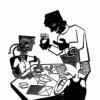
Greeting Card Boxes
Source Institutions
In this activity, learners make cool boxes out of old (or new) greeting cards or postcards.
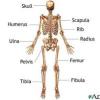
Bones
Source Institutions
In this health activity (page 5 of the PDF), learners will explore a unique connection betweeen the bones of the body.
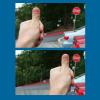
Experiencing Parallax With Your Thumb
Source Institutions
In this activity, learners investigate parallax, a method used to measure distances to stars and planets in the solar system.
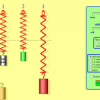
Masses & Springs
Source Institutions
In this online activity, learners use a realistic mass and spring laboratory. They hang masses from springs and adjust the spring stiffness and damping.

Be A Pasta Food Scientist
Source Institutions
In this activity, learners of all ages can become food scientists by experimenting with flour and water to make basic pasta.

What is a Nanometer?
Source Institutions
This lesson focuses on how to measure at the nanoscale and provides learners with an understanding how small a nanometer really is.
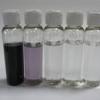
Exploring Size: Scented Solutions
Source Institutions
This is an activity in which learners will find that they can detect differences in concentration better with their nose (smelling) than with their eyes (seeing).
Building Houses: Build a Cardboard Tube House
Source Institutions
Build a house you can fit inside, using cardboard tubes.
Piece It Together: Puzzle Hunt
Source Institutions
In this activity, learners follow clues to find five puzzle pieces, then assemble them. This activity works well with a whole group, individuals, or families.
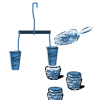
A Question of Balance
Source Institutions
In this activity, learners explore how engineers use scales and measures when designing a manufacturing process to ensure that final products are uniform in weight or count.
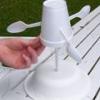
Measuring the Wind
Source Institutions
In this activity, learners explore how anemometers work to record wind speeds and how the equipment has undergone engineering adaptations over time.
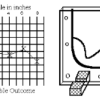
Topographic Investigation: Map an Underwater Surface
Source Institutions
In this activity, learners create a map of a hidden surface using a "sounding stick" -- a technique similar to how underwater maps were once made.
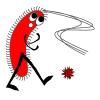
Comparing Sizes of Microorganisms
Source Institutions
In this activity related to microbes, learners create scale models of microorganisms and compare relative sizes of common bacteria, viruses, fungi and protozoa using metric measures: meters, centimete
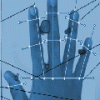
Hand Biometrics Technology
Source Institutions
In this activity, learners explore how engineers incorporate biometric technologies into products as well as the challenges of engineers who must weigh privacy, security and other issues when designin
